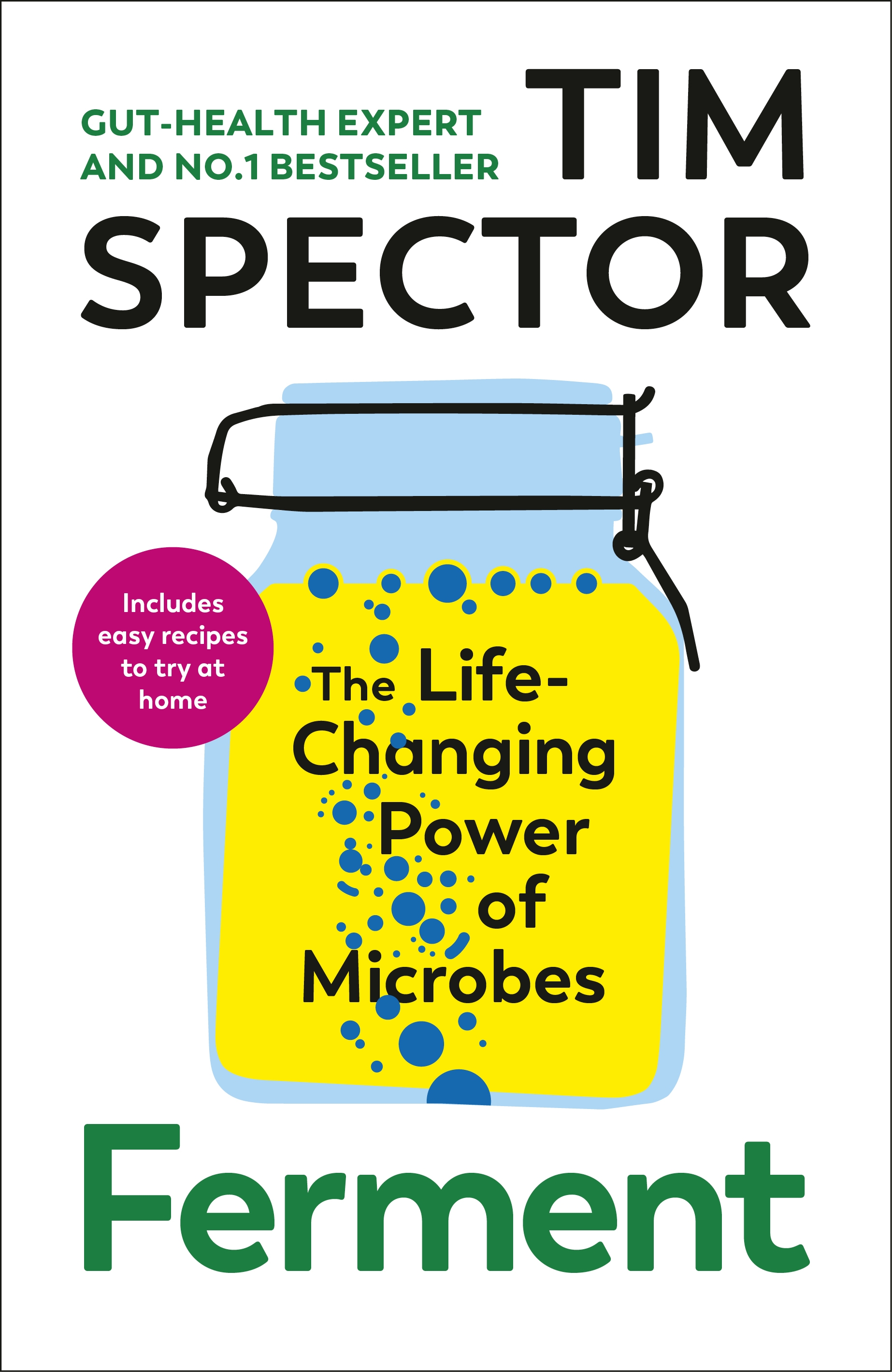Fermentation, Tim Spector writes, is the “ancient process of alchemy” by which microbes — mainly bacteria and fungi (including yeast) — transform one foodstuff into another, even more exciting one. Boring old milk turns into thrilling substances like yoghurt, kefir and cheese. Grapes become wine. Wine becomes vinegar. Tea becomes kombucha.
This is all very delicious, if you like that sort of thing, which I do, even though “getting into ferments” is up there with wearing a Dryrobe in terms of middle-aged cringe. (And yes, I do have a Dryrobe, thank you.) But according to Spector, a professor of epidemiology at King’s College London and long-term advocate for the importance of the microbiome, the benefits run deeper.
He cites one study of 10,000 volunteers who ate three portions of fermented food a day for three weeks — 47 per cent of them experienced improved mood, 55 per cent reported more energy, 52 per cent had less hunger and 42 per cent had a decrease in bloating. Spector declares this “amazing” and adds: “If these results had been for a new vitamin supplement it would be blockbuster.”
His giddy tone makes it easy to miss the fact that these results do not sound, on a sober assessment, wildly impressive. It amounts to saying that if you give a certain population a certain intervention, there’s about a 50-50 chance they will tell you they feel better. That’s not nothing, but between the placebo effect and the vagaries of self-reporting, the claim in Ferment’s subtitle that these foods are “life-changing” might be an overstatement.

It’s true that this is stronger evidence than exists for most vitamin supplements, but then most vitamin supplements show negligible effects except in cases of deficiency. Obviously, I still take my daily cocktail of zinc, iron and magnesium because I’m just that kind of person: the Dryrobe-wearing, kefir-glugging self-optimiser. The kind of person, in fact, who has helped to make Spector very rich.
Because Spector has undergone his own process of alchemy. Go back a few decades and he was a normal — albeit very respected — academic. In 1992 he established TwinsUK at KCL, a vast registry of identical and non-identical twins for clinical research. This is hugely valuable in exploring the genetic and environmental causes of disease, and has contributed significant breakthroughs on cardiovascular disease, diabetes, obesity and osteoarthritis.
• Tim Spector’s fermented food diet — and the new gut science
Spector parlayed the twin studies into a series of successful books on health, particularly diet, and gained even greater prominence during the Covid pandemic as the public face of research into coronavirus symptoms. He’s one of the main reasons you’ve heard so much about the harms of ultraprocessed foods (UPFs); he’s also the source of the widely bandied advice about eating 30 different plants each week.
In 2018 he fully embraced the world of entrepreneurship when he co-founded the company Zoe. This uses at-home testing (a glucose monitor, a pinprick blood sample and — look away if you’re squeamish — a poo sample) to develop a personalised nutrition programme. Subscribers pay £299 up front for the tests, then up to £24.99 a month. Zoe also conducts research, including that study on ferments that Spector found so compelling.

Tim Spector is a professor of epidemiology at King’s College London
There are other Zoe products you can buy. The Gut Shot is a small bottle of kefir costing £2 for 150ml, while Daily 30+ is a powder to “support your gut and energy” (£39 for a month’s supply). In May the Advertising Standards Authority banned an advert for Daily 30+, warning Zoe not to promote its products as UPF-free when some of the ingredients looked an awful lot like they had been ultra-processed.
• What are kefir, kombucha, kimchi — and which is best for you?
As the cabbage in the Kilner jar ferments to become kimchi, so the scientist in the biotech start-up gradually transforms into a health influencer. On the one hand, you would hope that Spector was happy to stand behind his own product. On the other, there’s an undeniable conflict of interest when a scientist’s research is directly tied to his commercial concerns.

Eating kimchi can cut the risk of obesity by 11 per cent, research suggests
GETTY IMAGES
So while Spector writes like a popular scientist, the sharp tang of the businessman is always present. When he complains at length that “the regulation and promotion of gut-friendly foods is a mess”, I wonder if he’s thinking about that ASA judgment. In any case, he immediately goes on to praise his own Gut Shot, although not directly by name, as “the best available on the market”.
Personally, I’m very open to the idea that fermented food is good for you, and tempted to try some of the recipes here. Nonetheless, it must be admitted that some of the research in this field is at best nascent. A nadir is reached in a passage on the potential benefits of pasteurised sake when Spector writes that “anecdotally a few Japanese mice having radiotherapy seem to have done well on it”. Who is reporting the anecdote? The mice?
• Read more book reviews and interviews — and see what’s top of the Sunday Times Bestsellers List
At other times, it’s less a case of TBC than TMI. Extolling the benefits of coffee (which, I was surprised to learn, is fermented in its progress from bean to cup), Spector tells us: “Many people (including my wife) find they can time their bowel movements to the minute after their morning cup of coffee; for me it is not so clear-cut.”
But I suspect that for those who are fully indoctrinated into the cult of Zoe, an insight into their leader’s bowels will be scrutinised like a prophecy. I expect Ferment to sell by the palletload and lead to a mass infestation of mystery jam jars in the nation’s fridges. If it also leads to a rush on Gut Shots and Zoe memberships, well, that’s just what influencers like to call synergy.
Ferment: The Life-Changing Power of Microbes by Tim Spector (Jonathan Cape £25 pp336). To order a copy go to timesbookshop.co.uk. Free UK standard P&P on orders over £25. Special discount available for Times+ members

